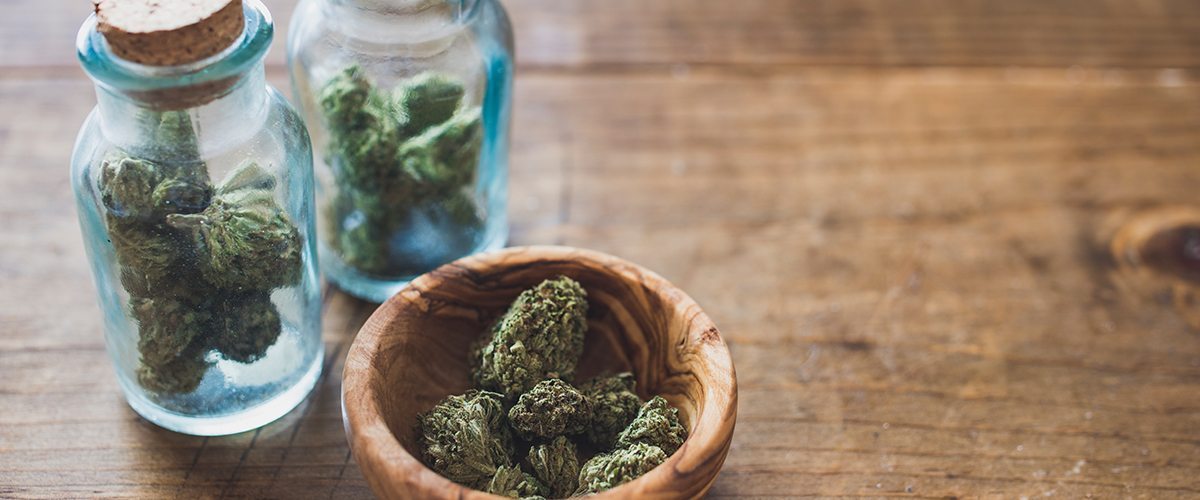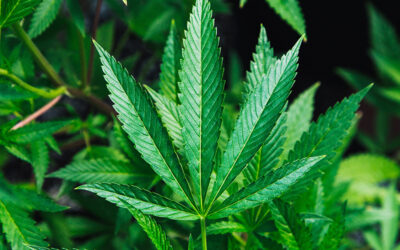As states around the U.S. legalize recreational and medical marijuana, marijuana use has increased in popularity. However, just because marijuana use is becoming more widespread does not mean that there are no side effects of marijuana use. Below, we provide a complete overview of the potential side effects you can expect when using marijuana.
Regardless of whether a person is using marijuana for its wellness or euphoric properties, consuming marijuana can produce a variety of physical and psychological side effects. Not everybody experiences the same effects, as the way an individual reacts to marijuana can vary depending on both the type of cannabis used and the way it’s consumed. While there may not be a “one size fits all” marijuana experience, it’s still best to understand some possible marijuana side effects that you may experience.
What Are Common Marijuana Side Effects?
The primary effect caused by marijuana that most people are familiar with is the psychoactive response or euphoric effects that users often feel. This mind-altering response is caused by a cannabinoid called tetrahydrocannabinol, or THC.
For those who use marijuana for recreational purposes, the euphoric effects caused by THC are desirable. However, these pleasurable effects often come with other related marijuana side effects. Below are some of the most common side effects of marijuana use, especially if you are using a marijuana strain that contains high amounts of THC.
Alter Your Senses
Marijuana is known to enhance one’s senses, altering the way things taste, sound, look, etc. While some may find this to be a pleasurable experience, others may find it stressful and confusing.
Cause Disorientation or Dizziness
It is not uncommon for marijuana users to feel lightheaded, which can cause some discomfort in sensitive users. Many users report that marijuana can make them feel like their head is spinning.
Slow Reaction Time and Impair Body Movement
Marijuana has been shown to slow motor control. This can make it difficult for some users to complete certain tasks, such as driving. That is why it is imperative to avoid driving and other potentially dangerous tasks when intoxicated by the use of marijuana.
Cause Short-Term Memory Issues
Marijuana has been known to inhibit the ability to form short-term memories. This can lead to brain lapses and the inability to remember things mere moments after they occur.
Cause Drowsiness or Sleepiness
Marijuana can also cause drowsiness in some users. While some look for these effects to help them sleep, users should be aware that they may have trouble staying alert and awake if they consume marijuana during the day.
Create Dry Mouth
One commonly reported side effect is a dry sensation in the mouth. This effect seems to be caused by the involvement of the endocannabinoid system in the inhibition of saliva secretion.

How Long Will it Take For Marijuana Side Effects to Develop?
How long it takes for many of these side effects of marijuana use to develop depends on how you consume marijuana. When marijuana is smoked or vaped, your body will absorb the THC much more quickly than when it’s taken orally and has to first be digested in the stomach. The side effects of eating marijuana can vary greatly from the side effects of smoking marijuana.
Because of these potential short term effects, a person should plan ahead when consuming cannabis that contains THC. If you plan on using marijuana, make sure you avoid driving a vehicle, handling heavy machinery, or taking on other important responsibilities for a period afterward. The full effects of marijuana, including marijuana side effects, usually wear off after three to four hours.
How Can I Avoid the Psychoactive Effects of THC?
Not everyone seeking the benefits of cannabinoids enjoys the euphoric effects caused by THC. If you are looking for the natural health benefits of cannabis without having to experience its psychoactive effects, you should opt for cannabis strains that are higher in cannabidiol (CBD) than THC.
CBD is another prevalent cannabinoid found in marijuana and hemp. CBD features no psychoactive or euphoric effects, and it also will not intoxicate you as THC does. However, CBD still interacts with the endocannabinoid system to provide beneficial effects. Unlike THC, CBD derived from hemp is federally legal in the U.S., and products containing CBD hemp oil are available from online retailers, wellness shops, and health specialists.

Other Possible Short-Term Side Effects of Marijuana Use
The cannabinoids found in marijuana interact with receptors throughout almost your entire body, potentially eliciting additional side effects. As stated above, every individual reacts to marijuana use differently, meaning that there is a wide range of potential marijuana side effects. Below, you can find a list of some additional short-term side effects of marijuana use.
Encourages Relaxation and Diminishes Agitation
A common reason why people use marijuana is because of its relaxing effects. Studies have shown that cannabis produces a sense of calm. For those who are constantly feeling tense, marijuana can provide solace and a way to unwind.
Induces Paranoia
While THC in smaller doses has been shown to relieve tension and have calming effects, some marijuana users have found that large doses of THC may induce mild to intense paranoia. Studies indicate that genetics, personality, the presence of an anxiety disorder, and how often a person consumes marijuana can increase the risk of experiencing paranoia. Using high-CBD, low-THC cannabis strains can prevent and even counter paranoia as a side effect of marijuana use.
Increased Heart Rate
Marijuana’s interaction with the endocannabinoid system generates complex effects on the cardiovascular system, including raising resting heart rate, dilating blood vessels, and making the heart pump harder. This can lead to a pounding sensation in the chest that can prove disturbing to some users. While this does not pose a significant threat to people who have minimal cardiovascular risk, it should be a red flag for anyone with a history of heart disease.
Boosts Creativity
Studies indicate that by increasing neural activity and increasing cerebral blood flow to the front lobe of the brain, marijuana increases cognitive creative processes, as well as the ability to connect abstract thoughts. This can make marijuana a great tool to help an individual embark on a creative project or endeavor.
Increases Appetite and Food Consumption
The common joke is that marijuana gives people the “munchies.” It’s true that studies have shown THC to increase appetite, and these effects have proven to be beneficial for those needing help getting nutrients and calories. Marijuana is commonly recommended for patients suffering from anorexia or cachexia.

Potential Long-Term Side Effects of Marijuana Use
Evidence indicates that when used over time, marijuana may also cause some long-term side effects. It’s unclear whether these effects are permanent. Along with the below listed long-term marijuana side effects, long-time users may experience minimal withdrawal symptoms once they stop using, including irritability, cravings, and sleeping problems.
Below, we have provided a list of some of the possible long-term side effects of marijuana use.
Worsens Psychosis and other Mental Health Problems
While it’s unclear whether marijuana can induce mental health problems, some studies do suggest that it may cause the conditions, like schizophrenia, to become worse. More recent studies, however, indicate that cannabis can be beneficial for treating mental health conditions such as depression, hinting that marijuana’s effects on mental health are complex and demand further research.
Affects Lung Health
While research has yet to directly connect marijuana smoking to lung cancer, studies have shown that smoking cannabis does lead to detrimental effects on the lungs. Over time, smoking marijuana can cause respiratory problems, including bronchitis, chronic cough, and airway inflammation.
The risk of damage to the lungs caused by smoking marijuana has shown to be far lower than the problems caused by smoking tobacco cigarettes. Many of the negative effects on the lungs listed here, though minimal in marijuana users, can be averted by choosing to consume cannabis rather than smoking it.
Do the Benefits of Marijuana Use Outweigh the Risks?
Despite these possible marijuana side effects, many patients choose medical marijuana over other potential treatments for their conditions. As a whole, many experts feel that medical marijuana could positively impact healthcare in the U.S.
Decades of research suggest that cannabis use can be beneficial for an array of health conditions and symptoms. While this research provides a great starting point, over time we hope to compile more complete research into the long-term effects of marijuana in order to help us understand and weigh marijuana’s risks and benefits.
Want to Learn More About Marijuana Side Effects and Cannabis?
Now that you have learned about the possible marijuana side effects, it may be time to consider other cannabis products. If you are interested in learning more about cannabis and cannabis products, visit our Cannabis 101 page for information on legal marijuana, popular marijuana strains, and more.






